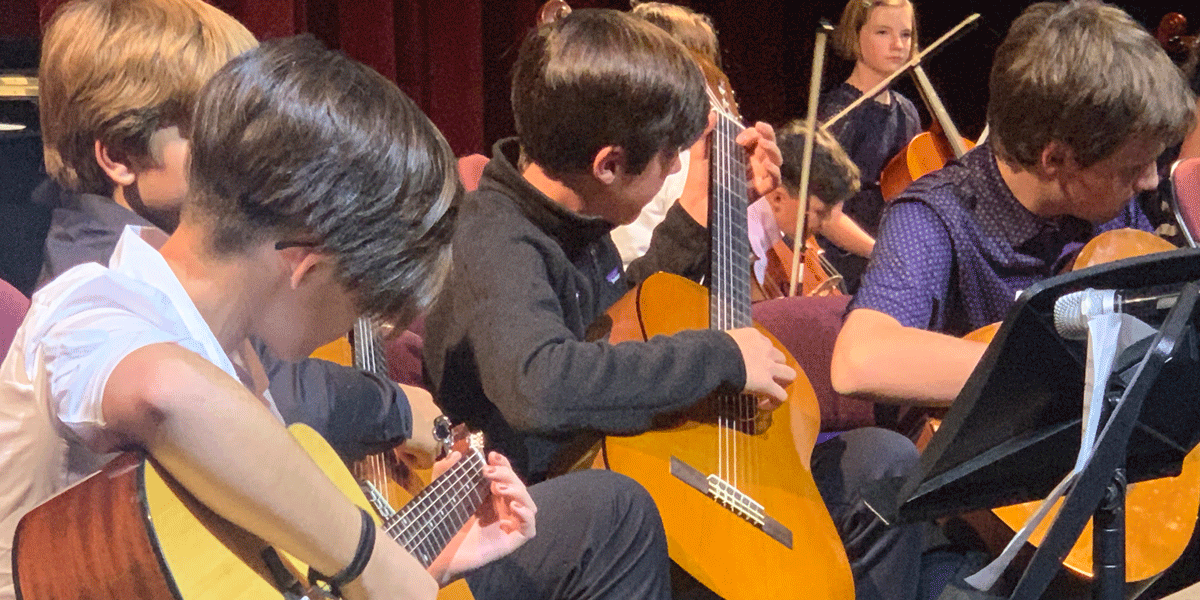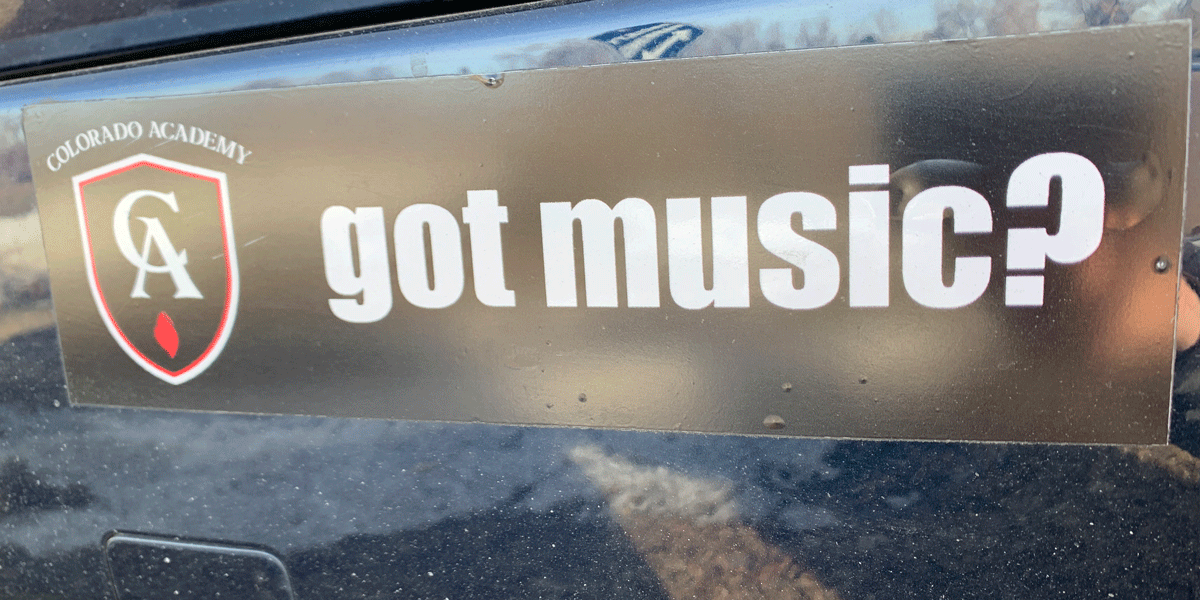While driving onto the Colorado Academy campus one day back in September, I pulled in behind a member of our music faculty. A bumper sticker on their car asked, “Got Music?” I began contemplating the answer and now realize that I have been reflecting on the role music plays in our lives for the past four months.
I knew I wanted to be an artist at the age of five. I inherited the love of painting and drawing from my mother and maternal grandmother, and have studied the visual arts ever since. My grandmother passed away at the age of 92 after a twenty-year battle with advanced dementia. My mother is now in the grips of the disease herself. At my childhood home, the walls are covered with paintings done by all three of us.
My mom said to me this summer, “I wish I knew how to paint.” I then gave her a tour of all the artwork she has created, trying to refresh her memory of her talents. Having watched our grandmother, and now mother, go through the loss of their memories, my sisters and I are now researching what we can do to prevent the disease. Guess what keeps coming up in our research? Music.
Think of making music and listening to music as exercising the brain. It is like going to the gym for your brain. The work that our brains do to move the sound waves of music from our external ear to our brain is extraordinary. The waves move through our inner ear, to the ear drum, through the middle ear to the cochlea, where cells release chemical neurotransmitters that activate the auditory nerve that sends electric currents to the auditory cortex in the temporal lobe of the brain. Our brain has to do a lot of computing to make sense of it all. What is perhaps the most interesting is that our procedural memory of making and remembering music stays intact, even with dementia.

Why is music so good for our brains?
- Music stimulates memories. We can all remember a time when an old song plays on the radio and it helps us recall a feeling or an event from the past as if it just happened.
- Music can make us feel better. Research shows that music can change our moods, lower blood pressure, reduce stress hormones, reduce depression, and improve mental alertness.
- Music connects us. Since the beginning of time, music has been a part of every culture on the planet. It is embedded in the fabric of who we are as a species. Chances are that your family has been connected by music from past or the present. Sharing a song with a loved one stimulates positive interactions with one another.
- Music is expression. It is an art form that is personal and gives us the opportunity to reaffirm our own identities.
So, as I mentally prepare for my first piano lesson in 30 years scheduled for tomorrow, I am excited (and nervous) to exercise my brain. Do you “Got Music?”
I’ll end with a message from Plato. “Music is a moral law. It gives soul to the universe, wings to the imagination, and charm and gaiety to life and to everything else.”
